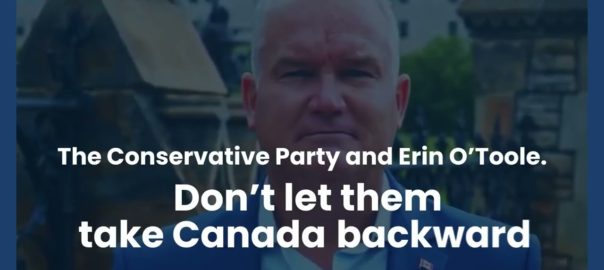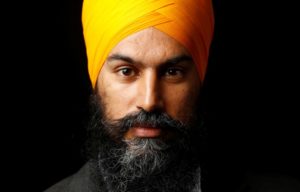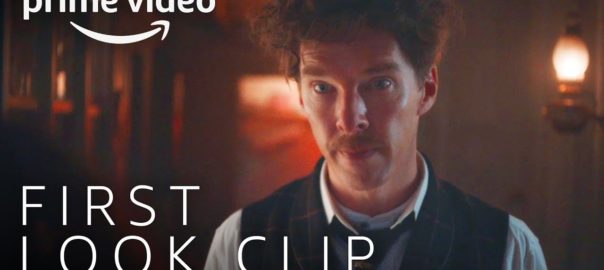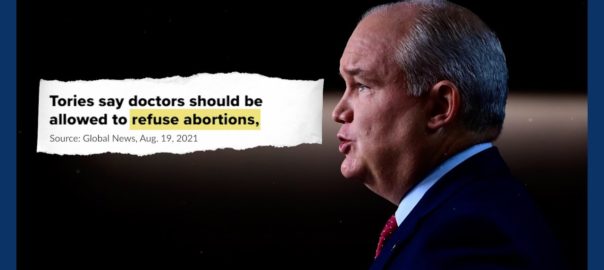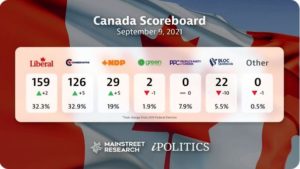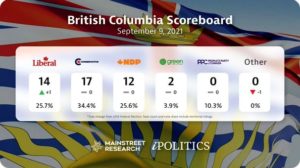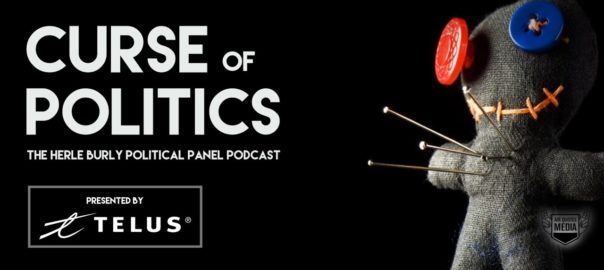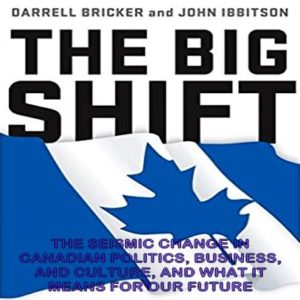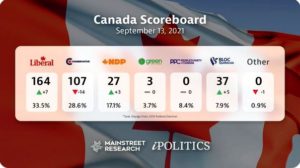
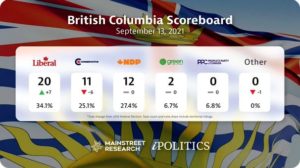
With only one week to go, Canadians — who just 11 days ago seemed almost completely unaware there was a federal election going on — have come out of their slumber, and in vast numbers have set about to change the complexion of the current election.
Here’s what the polls were looking like on September 2nd …
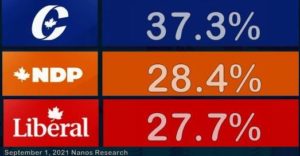
On Thursday, September 2nd, Erin O’Toole’s Conservatives seemed to have the election in the bag, their policy-driven campaign a wild success, while at the same time Jagmeet Singh’s federal NDP campaign had caught fire, and catapulted the usual also-ran social democrats into second place, and ready to assume the mantle of Opposition party in the next session of Parliament.
So, what happened in 11 days to turn the Liberal campaign around?
1. Voters took a closer look at a Conservative Party platform that would annul a national child care programme signed onto by eight provinces and territories; nullify a Canada Child Care benefit programme that has provided much needed aid to young families, while cutting child poverty in Canada by 40% since 2015; rescind the ban on tanker traffic along British Columbia’s pristine coast; and reverse the current ban on assault weapons that have murdered so many of our fellow citizens; among dozens of other provocations;
2. Canadians took a closer look at the fiasco that is pandemic policy in the four provinces where the Conservative party is in power, and what that might mean for Tory pandemic policy federally. The provinces of Alberta and Saskatchewan — both of which refuse to consider a vaccine card to help keep their citizens safe — have the highest per capita COVID-19 infection rates in Canada, and a citizen vaccination rate lower than anywhere else in the country, where the Premiers of these provinces say, “Everything is back to normal. We had lockdowns, quarantined our citizens, did contract tracing, and spent far too much taxpayer money on fighting a war against an invisible foe.” Recently resigned Manitoba Premier Brian Pallister and Ontario Premier in hiding, Doug Ford, have done little better in protecting their citizens and fighting the scourge that is COVID-19.
https://twitter.com/EDenhoff/status/1436810714677604352?s=20
Canadian voters aren’t stupid: they know what an Erin O’Toole government would mean for the health of their families.
3. If Justin Trudeau and the Liberal Party have risen 5.8 points in the polls in the past 11 days, and Erin O’Toole’s Conservatives have lost 8.7 points in Canada-wide polling, the party that has experienced the steepest decline in support is Jagmeet Singh’s NDP, who in falling from a September 2nd high of 28.4% to a mere 17.1% standing today — for an incredible (if not unexpected) drop of 11.3 percentage points — simply have to be reeling.
Although, the NDP will pick up three seats if the Mainstreet Research / iPolitics poll above is correct.
Election Day 2021 is but one short week away from today.
By late in the evening of Monday, September 20th, Canadians will know whether we’ve elected an Erin O’Toole government — certainly not out of the realm of possibility, given the volatility of the current election cycle — or returned Prime Minister Justin Trudeau to Ottawa, for what will likely be his final term in office, allowing him to complete his work on creating a national child care programme, and seeing us through this pandemic that has so disrupted the lives of all Canadians.
